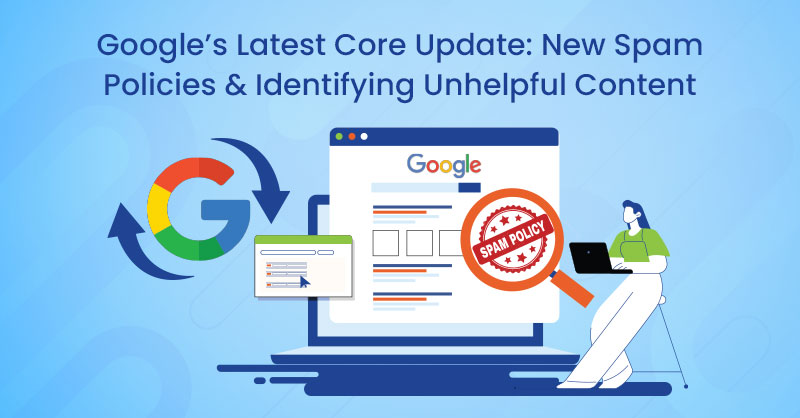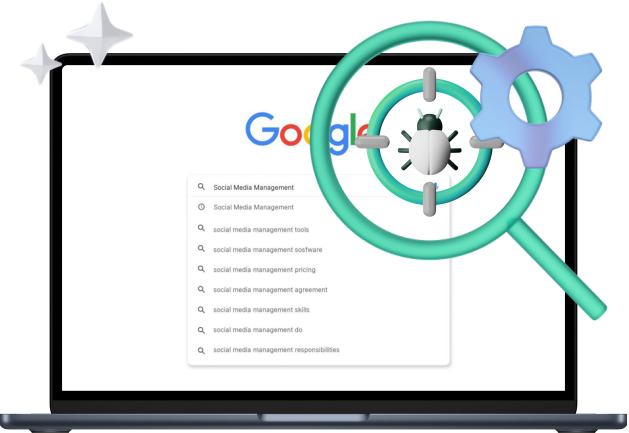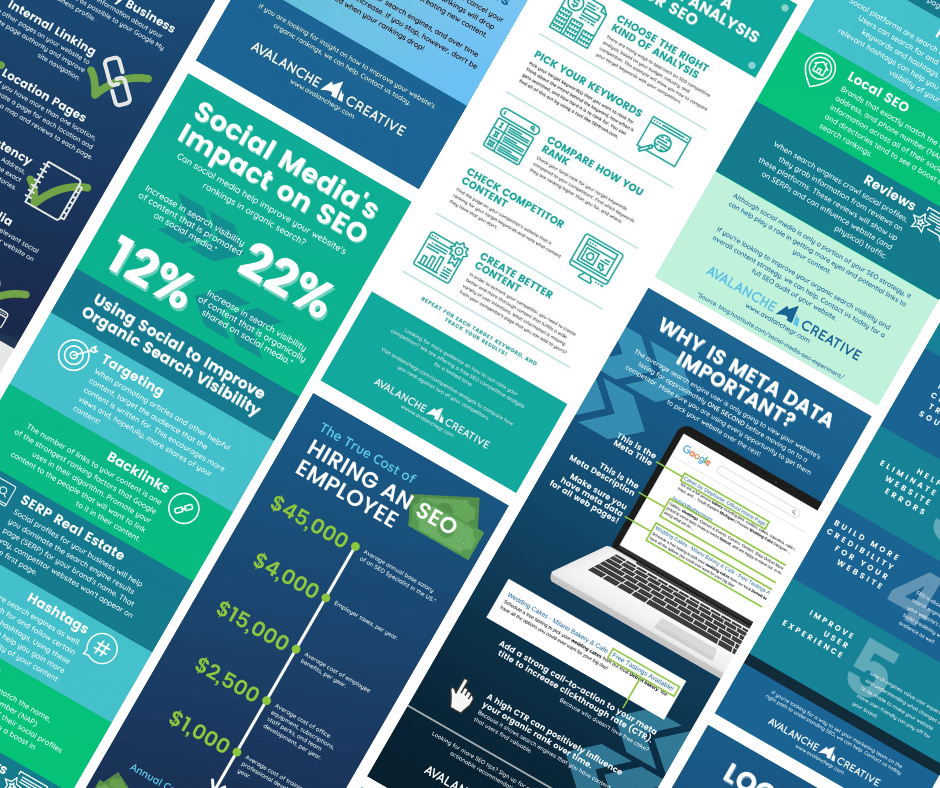Uncover the mysterious world of SEO spam and learn how to navigate through the pitfalls to keep your website safe.

Image courtesy of via DALL-E 3
Table of Contents
Introduction to SEO Spam
SEO, or Search Engine Optimization, is a crucial aspect of making a website visible on the internet. It involves using specific techniques to improve a site’s ranking on search engine result pages. However, not all SEO practices are ethical or beneficial. Some methods can harm a website’s reputation and even get it penalized by search engines. This is where SEO spam comes into play.
What is SEO?
SEO is like a magic spell that helps websites become more visible to people searching for information online. By using the right keywords and tactics, websites can appear higher up in search results, making it easier for people to find them.
What is Spam?
Spam is like the junk mail that fills your mailbox with unwanted and sometimes harmful messages. In the online world, spam refers to content that is deceptive, irrelevant, or meant to trick search engines into ranking a website higher than it deserves.
Why Avoid SEO Spam?
Avoiding SEO spam is important because it can have serious consequences for a website. Search engines like Google can penalize sites that use spammy techniques, causing them to lose visibility and credibility. Additionally, spam can create a negative experience for website visitors, leading to a loss of trust and potential customers.
Types of SEO Spam
Keyword stuffing is when website creators unnaturally cram a webpage with keywords in an attempt to manipulate search engine rankings. This results in poor quality content that is difficult to read and offers little value to visitors. Search engines have algorithms in place to detect this practice and penalize websites that engage in keyword stuffing.
Cloaking
Cloaking is a sneaky technique where different content is shown to search engine crawlers than what actual visitors see. This deceptive method aims to trick search engines into ranking a webpage for irrelevant or popular keywords. It is considered a violation of search engine guidelines and can lead to severe penalties for the website.
Link Farms
Link farms are networks of websites that exist solely to create backlinks to other sites in the network. These artificial backlinks are created in large quantities, often from low-quality or irrelevant sites, with the goal of boosting a website’s search engine ranking. However, search engines have evolved to recognize and devalue such spammy links, which can harm a website’s credibility and visibility.
Spam Comments
Spam comments are irrelevant, automated, or low-quality comments left on blogs and websites with the intention of generating backlinks or promoting a website. These comments often contain links to suspicious websites or products. Not only do these spammy comments detract from the user experience, but they can also harm a website’s reputation and authority in the eyes of search engines.
Why SEO Spam is Harmful
When websites use SEO spam techniques, they run the risk of being penalized by search engines like Google. These penalties can result in a significant drop in search rankings, making it harder for the website to be found by users. It’s like receiving a time-out from the search engine for trying to cheat the system.

Image courtesy of via Google Images
Loss of Trust
Imagine visiting a website for information, only to be bombarded with irrelevant keywords and links. This can lead to a loss of trust from both visitors and search engines. People want to find reliable and helpful information, not be tricked into clicking on spammy content.
Poor User Experience
SEO spam can make a website difficult to navigate and read. Imagine trying to find your favorite toy in a messy room filled with irrelevant items. It can frustrate users, leading them to leave the site quickly, resulting in a poor user experience. Websites should aim to provide a clean and enjoyable browsing experience for their visitors.
How to Identify SEO Spam
When browsing the internet, you may come across websites that use SEO spam techniques to try and manipulate search engine rankings. It’s essential to be able to recognize these spammy tactics to avoid falling into the trap. Here are some signs to look out for:
Suspicious Keyword Density
If you notice a webpage that excessively repeats keywords in a way that sounds awkward or unnatural, it could be a sign of keyword stuffing. Search engines like Google penalize websites that engage in this practice, so it’s crucial to use keywords in a natural and relevant manner.
Odd URL Structures
Another red flag to watch for is strange URL patterns that don’t match the content on the webpage. This could indicate cloaking, a deceptive technique where the content shown to search engines is different from what visitors see. Be wary of websites with mismatched URLs.
Excessive Backlinks
While backlinks play a vital role in SEO, having too many low-quality or irrelevant backlinks can be a telltale sign of spam. Be cautious of websites that have an unusually high number of backlinks, as this could be a tactic to manipulate search engine rankings artificially.
Examples of Good SEO Practices
Good SEO practices are essential for helping websites rank higher on search engine results pages. By following these practices, websites can attract more visitors and improve their online visibility.

Image courtesy of via Google Images
Natural Keyword Use
One of the key aspects of good SEO is using keywords in a natural and relevant manner throughout the website. Instead of stuffing keywords unnaturally into content, it’s important to incorporate them in a way that flows smoothly and provides value to the reader. This helps search engines understand the context of the content and rank it appropriately.
Quality Content Creation
Creating high-quality and valuable content is crucial for good SEO. Content that is well-written, informative, and engaging not only attracts more visitors but also encourages other websites to link back to it. Search engines prioritize content that is useful and relevant to users, so focusing on creating top-notch content is a key SEO strategy.
Ethical Link Building
Link building is an important aspect of SEO, but it’s essential to do it ethically. Building links through spammy tactics can harm a website’s reputation and lead to penalties from search engines. Ethical link building involves obtaining links from reputable and relevant sources, avoiding link schemes, and focusing on creating valuable content that naturally attracts backlinks.
SEO Tools to Use
Google Analytics is a powerful tool that helps website owners track and analyze their site’s performance. By using Google Analytics, you can gather valuable data on your website’s traffic, user behavior, and conversions. This information can be crucial in understanding how users interact with your site and where improvements can be made to boost your SEO rankings.
Yoast SEO
Yoast SEO is a popular WordPress plugin that offers various features to help you maintain good SEO practices. One of its key benefits is its ability to analyze your content for SEO-friendliness as you write. Yoast SEO provides real-time feedback on factors like keyword usage, readability, and meta descriptions, ensuring that your content is optimized for search engines and readers alike.
Moz Pro
Moz Pro is a comprehensive SEO toolset that can assist you in monitoring and improving your website’s search performance. With features like keyword research, link analysis, and site audits, Moz Pro provides valuable insights into your site’s SEO health. By utilizing Moz Pro, you can identify and address issues that may be affecting your site’s visibility and overall ranking on search engine results pages.
Steps to Clean up SEO Spam
If you suspect that your website has fallen victim to SEO spam, the first step is to identify the problem areas. Take a close look at your content, keywords, and backlinks to spot any discrepancies or suspicious patterns. Look for an unusually high keyword density, strange URLs, or an excessive number of backlinks that seem unnatural.

Image courtesy of via Google Images
Removing Spam Content
Once you have pinpointed the spammy elements on your website, it’s time to take action. Remove or edit any content that violates SEO guidelines, such as keyword stuffing, hidden text, or irrelevant backlinks. Clean up your website by ensuring that all the content is genuine, informative, and adds value to your visitors.
Requesting Search Engine Review
After cleaning up the SEO spam from your website, it’s crucial to inform search engines about the changes you’ve made. Submit a reconsideration request to search engines like Google, explaining the steps you’ve taken to rectify the spammy issues. This will prompt search engines to reevaluate your website and hopefully lift any penalties imposed due to the spam.
Preventing SEO Spam
In order to keep your website free from harmful SEO spam, there are several preventative measures you can take. By following these tips, you can ensure that your site remains in good standing with search engines and maintains a positive user experience.
Regular Audits
It’s essential to conduct regular audits of your website to check for any signs of SEO spam. By reviewing your content, keywords, and backlinks on a consistent basis, you can catch any potential issues early on and address them promptly.
Ongoing Education
Staying informed about the latest SEO best practices is crucial for avoiding spammy techniques. By keeping up to date with changes in search engine algorithms and industry trends, you can adapt your strategies accordingly to maintain ethical practices.
Hiring SEO Experts
If you’re unsure about how to effectively prevent SEO spam or if you lack the time to manage it yourself, consider hiring SEO experts. These professionals can help you implement and maintain good SEO practices, ensuring that your website remains free from spam and continues to perform well in search results.
Conclusion
In this article, we’ve discussed the importance of avoiding SEO spam and the negative impacts it can have on websites. By understanding what SEO spam is, recognizing its different types, and learning how to identify and clean it up, you can ensure that your website maintains good standing with search engines and users.

Image courtesy of via Google Images
Final Thoughts
Remember, using SEO spam techniques may provide short-term gains, but they can lead to long-term consequences such as search engine penalties, loss of trust, and a poor user experience. It’s essential to prioritize ethical and quality SEO practices to build a reputable and successful website.
Want to turn these SEO insights into real results? Seorocket is an all-in-one AI SEO solution that uses the power of AI to analyze your competition and craft high-ranking content.
Seorocket offers a suite of powerful tools, including a Keyword Researcher to find the most profitable keywords, an AI Writer to generate unique and Google-friendly content, and an Automatic Publisher to schedule and publish your content directly to your website. Plus, you’ll get real-time performance tracking so you can see exactly what’s working and make adjustments as needed.
Stop just reading about SEO – take action with Seorocket and skyrocket your search rankings today. Sign up for a free trial and see the difference Seorocket can make for your website!
Frequently Asked Questions (FAQs)
What happens if I use SEO spam?
If you use SEO spam on your website, you might face penalties from search engines. These penalties can include your site being pushed down in search results, or even being removed from search engine listings altogether. Additionally, using SEO spam can damage the trustworthiness and reputation of your website.
How can I tell if my site has SEO spam?
To check if your website has SEO spam, look out for signs like suspiciously high keyword density, strange URL structures, or an excessive number of backlinks. These can indicate spammy practices that may harm your website’s performance. It’s important to regularly audit your website for any signs of SEO spam to maintain a clean and reputable online presence.
Is it possible to recover from SEO spam penalties?
If your site has been penalized for using SEO spam techniques, there are steps you can take to recover. First, identify the problem areas and remove any spammy content from your site. Next, request a review from search engines to reassess your website. By cleaning up the spam and following ethical SEO practices, you can work towards recovering your site’s ranking and reputation.







